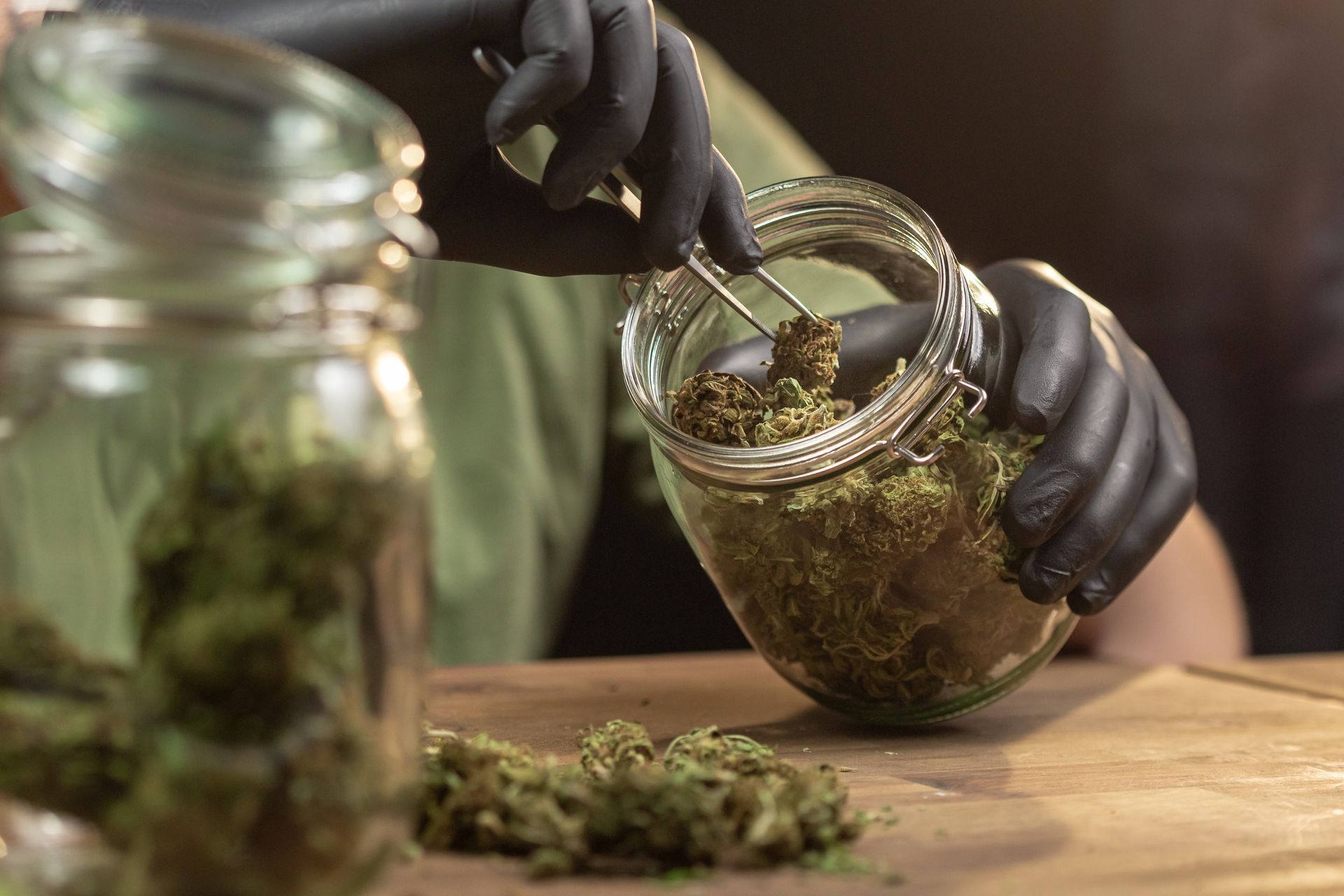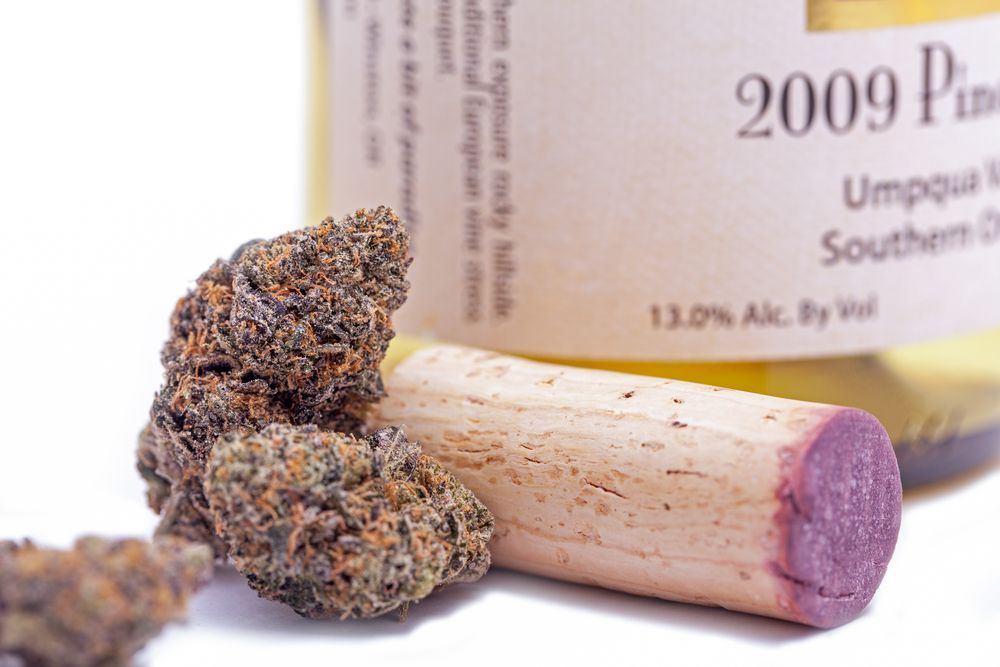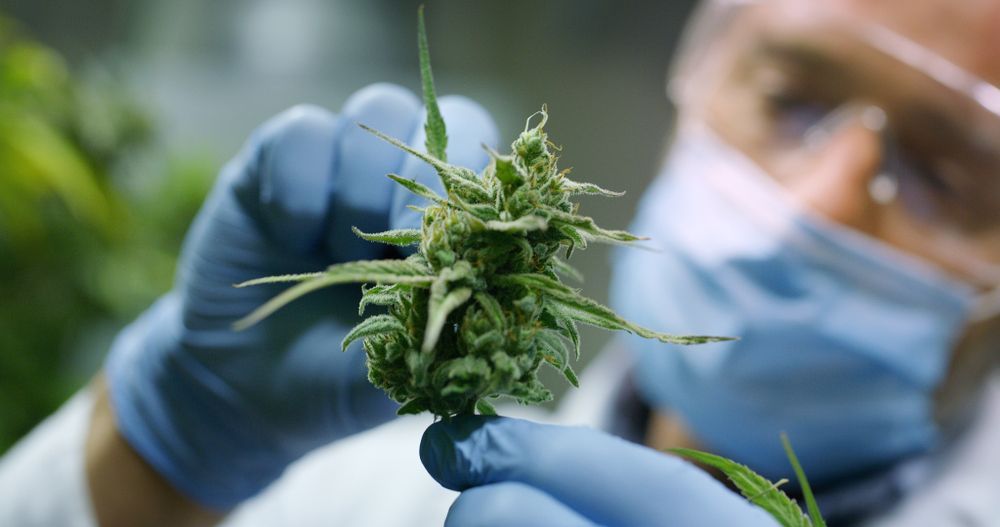Prominent Black Cannabis Advocates
Prominent Black Cannabis Advocates
We’ve been celebrating Black History Month all February, but the relationship between People of Color and cannabis throughout history has been tenuous at best—especially here in America. Even before the Marijuana Tax Act of 1937, weed was making life difficult for Black people, and although the struggle looks a little different today, it hasn’t gone away.
The first step toward effecting change is identifying the current problems and understanding where they come from. For this Black History Month, we wanted to explore the beginnings of the American hemp industry and its effect on Black people, a couple prominent Black musicians who advocated for its use despite harsh penalties in the Prohibition era, and some more contemporary individuals who are blazing trails through the modern cannabis industry with an eye to restoring justice to the people most negatively affected by the failed War on Drugs.
Black Cannabis History
As you might remember from our article about social justice and cannabis , hemp was a staple crop that thrived in North America’s temperate climate and helped the early United States gain a foothold in the global economy. Like most crops during the time of slavery, cannabis was entirely cultivated, harvested, and processed by the forced labor of West African slaves. Kentucky, in particular, quickly became both the biggest producer of American hemp and the home of one of the largest concentrations of slaves in the country.
Emancipation did not bring freedom from the tyranny of American cannabis for long. The Marijuana Tax Act of 1937 made it illegal to sell without certain tax approvals, and it opened the door for mass incarceration of people for its possession. While the law as written was nondiscriminatory, its enforcement was not, and Black and Latino communities suffered the most as a result.
This “anti-drug” rhetoric escalated in the 1960s and 1970s, which introduced the Controlled Substances Act and increased the penalties for drug-related offenses. While it wasn’t technically illegal to be Black in America, these harsher punishments and mandatory minimum sentences gave law enforcement a loophole to stop, frisk, harass, arrest, and imprison people at their discretion.
Now, almost 80% of the 150,000 people in federal prison and about 60% of the 1,200,000 in state prison serving sentences for drug offenses are Black or Latino. That’s 840,000 People of Color, and roughly half of them are doing time for marijuana. Even worse, in forty-eight of our fifty states, convicted felons are ineligible to vote —sometimes only while serving their sentences, but sometimes for the rest of their lives.
Prohibition-Era Advocates
Despite all this, there were still people who argued for the legalization of marijuana and a more equitable justice system, going all the way back to the turn of the 20th Century. At first, it was powerful enough just to be publicly associated with weed, defiant in the face of the encroaching Prohibition.
Louis Armstrong
Legendary jazz musician Louis Armstrong was a prominent proponent of the beneficial aspects of cannabis as far back as the 1920s. As he told biographer Max Jones , “We always looked at pot as a sort of medicine, a cheap drunk and with much better thoughts than one that’s full of liquor.” With his soaring trumpet and gravelly voice, “the gage” (as he called it) helped unlock new realms of creative possibility and take the edge off so many demanding performances. He liked it especially for the way it always brought out the warmth in people who were sharing a “stick”.
When Armstrong was arrested in 1930 outside the Cotton Club in California, it was because a rival bandleader was jealous and called in a tip to the local police. He only spent nine days in prison (turns out the detectives were big fans of his horn,) but was saddled with a six-month suspended sentence and likely only got out because of how influential the jazz world had become at the time.
Mary Warner, honey, you sure was good and I enjoyed you ‘heep much’. But the price got a little too high to pay (law wise). At first you was a ‘misdemeanor’. But as the years rolled on you lost your misdo and got meanor and meanor. (Jailhousely speaking). Sooo “Bye Bye, I’ll have to put you down, Dearest.”
[signed] Soul Foodly, Satchmo.
Peter Tosh
Peter Tosh personally advocated for legalization with his platinum solo record, “Legalize It”, and pushed hard for equal rights. He wasn’t content to just enjoy ganja for its own sake, he wanted to upend the entire oppressive system that made it illegal in the first place.
Singers smoke it
And players of instrument too
Legalize it, yeah yeah
That’s the best thing you can doDoctors smoke it
Nurses smoke it
Judges smoke it
Even lawyer, too— Peter Tosh, “Legalize it!”
Peter Tosh openly spoke truth to power, once lighting a spliff onstage at a packed concert where the Prime Minister of Jamaica was in attendance and ranting at the Prime Minister for over thirty minutes about his refusal to legalize ganja. He believed he—and everyone—had a natural right to consume the herb, and that no one was going to stop him.
Still, the backlash was brutal. Tosh was repeatedly arrested by Jamaican police and beaten nearly to death for his acts of defiance. The Peter Tosh Foundation continues his mission to see the legalization of cannabis everywhere, raise awareness of the need for prison reform in the United States, and liberate oppressed people from the torment of injustice.
Modern Restorative Activists
Now that medical and recreational marijuana are legal in so many states, that problem should be solved, right? No! The data since the onset of legalization suggest that although the arrest rates for drug offenses have gone down in states with legal marijuana, Black people are still 3.64 times more likely to be arrested for marijuana possession than white people. And you don’t even want to see these charts showing that fewer Black people are smoking weed than white people.
While the emergence of a new industry in legalized marijuana should be a boon for Black entrepreneurs looking to build generational wealth, the truth is that less than 3% of licensed cannabusiness are majority Black-owned. Instead of legalization laws rebuilding the communities that prohibition laws knocked down, they’re unleashing a wave white venture capitalists to excise the profits.
Fortunately, there are many People of Color working hard to be that change they want to see in the world, and they give us hope for a brighter and more equitable future.
Dr. Janice Knox
Dr. Janice Knox is the Oregon representative to the Doctors for Cannabis Regulation , advocating for science-based legislative changes to improve public health, social justice, and consumer protections regarding cannabis. She had been a board-certified anesthesiologist for thirty-five years before visiting a medical marijuana clinic and being surprised by the variety of patients and the ways they were using cannabis to manage their symptoms.
With her husband David and her daughters Rachel and Jessica (all doctors!), Dr. Knox founded American Cannabinoid Clinics , specializing in integrative cannabinoid medicine. This brand-new field pairs patients with their doctors in a partnership to explore their treatment options, the best way to consume cannabis as medicine, and strategies for mitigating any undesirable effects.
Wanda James
Wanda James smoked a little weed during college at University of Colorado, Boulder, but didn’t get involved professional with cannabis until later. She became one of the first African Americans, legally licensed in America, to own a cannabis dispensary with the founding of Simply Pure and went on to start the Cannabis Global Initiative , a consulting firm to help develop cannabis businesses and engage in political activism.
James has seen firsthand the damage that cannabis sentencing laws can bring. Her brother was arrested at seventeen for cannabis possession and sentenced to ten years in a maximum security penitentiary, where he worked picking ten pounds of cotton a day to reduce his sentence. She couldn’t even give her own brother a job when he got out because Colorado bans former felons from working in the cannabis industry.
Today, she continues to disrupt the industry, raising awareness about the over-policing of Black communities, the disproportionately high number of Black people incarcerated for cannabis, and the concerning lack of Black cannabis business ownership.
Jesce Horton
Jesce Horton’s father was arrested in Charlottesville, Virginia for possession of less than an ounce of marijuana with intent to distribute, and sent to prison for five years (although he got out early for good behavior) just before Jesce’s birth. As a result, the family had to move from place to place seeking employment, driving home the lifelong impact of mandatory minimum sentences on working families. “Just having a record means opportunities lost, depression, anxiety, and a lack of belief—feeling like your life is ruined because of this plant,” he told High Times.
Nevertheless, he persevered. After graduating from Florida State University in 2007 with a major in Industrial Engineering and a minor in Mathematics and Physics, Horton started growing medical cannabis within the Oregon Medical Marijuana Program for one of his fraternity brothers and his wife. Since then, he’s gone on to found NuProject with his wife Jeannette Ward Horton to reverse some of the damage wrought upon communities of color by anti-drug policies in the United States, the Minority Cannabis Business Association to help address the challenges faced by minority cannabis businesses and their communities, and one of our favorite flower producers, LOWD.
In 2016, Horton was appointed by Oregon Governor Kate Brown to the Task Force for Cannabis Environmental Best Practices , and he sits on the board of directors for the Oregon Cannabis Association.





